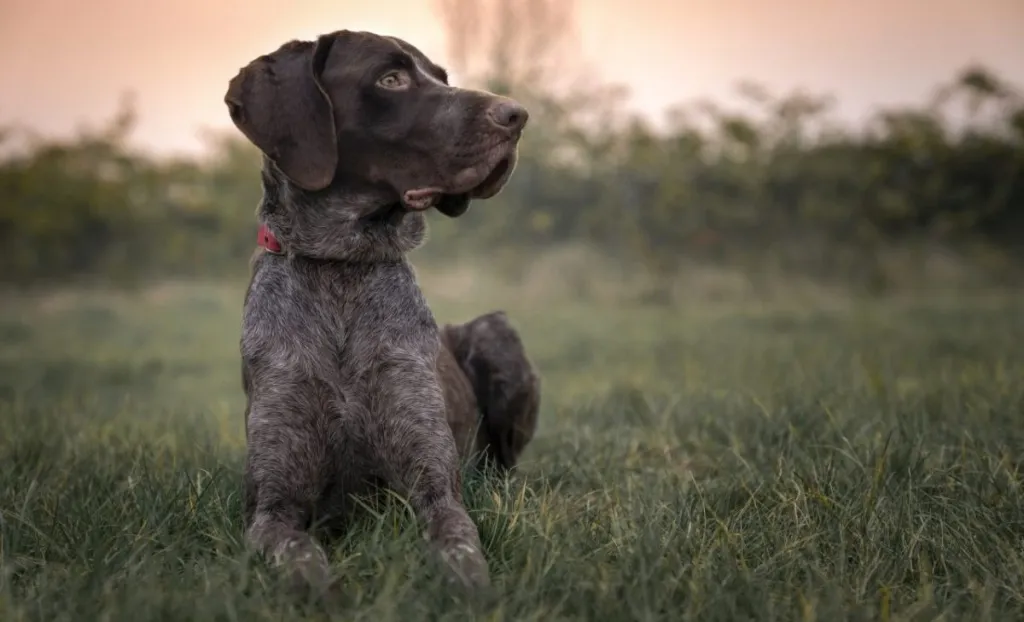Welcome to the world of the German Shorthaired Pointer (GSP), a breed renowned for its athleticism, intelligence, and unwavering loyalty. Whether you’re a hunter looking for a capable sporting partner or a family seeking an energetic and affectionate companion, the GSP fits the bill. In this expert guide, we’ll delve into everything you need to know about the German Shorthaired Pointer – from their history and characteristics to their care, training, health considerations, and why they’ve earned a spot as a beloved breed worldwide.
Origin and History of the German Shorthaired Pointer
The Origins of the GSP
The German Shorthaired Pointer originated in Germany during the 19th century, bred to be a versatile hunting dog capable of tracking, pointing, and retrieving game both on land and in water. They were developed by crossing various hunting breeds, including pointers, hounds, and bird dogs, to create a dog with exceptional scenting abilities, stamina, and intelligence.
Understanding the Traits of the German Shorthaired Pointer
Physical Characteristics
German Shorthaired Pointers are medium to large-sized dogs with a sleek, muscular build suited for endurance and agility. They typically stand between 21 to 25 inches tall at the shoulder and weigh between 45 to 70 pounds. Their short coat is dense and water-resistant, coming in liver (brown), black, or a combination of liver and white or black and white. They have expressive brown eyes and a distinctive broad muzzle.
Temperament and Personality
Known for their friendly and outgoing nature, German Shorthaired Pointers are highly energetic and require regular exercise to stay happy and healthy. They are intelligent, eager to please, and thrive on human interaction. GSPs are loyal companions who form strong bonds with their families and are excellent with children when properly socialized.
Caring for Your German Shorthaired Pointer
Nutrition and Diet
Providing a balanced diet is essential to support the GSP’s active lifestyle. Choose high-quality dog food appropriate for their age, size, and activity level. Monitor their weight to prevent obesity, which can lead to joint issues and other health problems common in larger breeds. Consult with your veterinarian for specific dietary recommendations.
Exercise Needs
German Shorthaired Pointers are high-energy dogs that require ample exercise to channel their physical and mental energy. Aim for at least 60 to 90 minutes of vigorous activity each day, which can include running, hiking, swimming, and interactive play sessions. Mental stimulation is also important, so incorporate training exercises and puzzle toys into their routine.
Grooming Requirements
Their short coat is easy to maintain with regular brushing to remove dead hair and distribute natural oils. Bathe them as needed and trim their nails regularly to prevent overgrowth. Check their ears regularly for signs of infection and clean them as recommended by your veterinarian to prevent issues.
Training and Socialization
German Shorthaired Pointers are intelligent and eager to please, making them relatively easy to train. Start obedience training and socialization early to help them develop into well-behaved adults. Use positive reinforcement techniques such as treats, praise, and playtime to motivate them during training sessions and build a strong bond.
Health Considerations and Lifespan
Common Health Issues
German Shorthaired Pointers are generally healthy dogs, but like all breeds, they may be prone to certain genetic health conditions. Common concerns include hip dysplasia, elbow dysplasia, progressive retinal atrophy (PRA), and bloat. Regular veterinary check-ups, preventive care, and maintaining a healthy weight are essential to monitor their health and detect issues early.
Lifespan and Veterinary Care
German Shorthaired Pointers have a lifespan of around 10 to 14 years on average. Routine veterinary visits for vaccinations, dental care, and health screenings help ensure they live a long and healthy life. Your veterinarian can provide guidance on specific health concerns and recommend appropriate preventive measures.
Living with a German Shorthaired Pointer
Ideal Home Environment
German Shorthaired Pointers thrive in homes where they receive plenty of exercise, mental stimulation, and companionship. They are adaptable to various living situations but require a fenced yard or access to outdoor activities. They are best suited for active families, hunters, or individuals who can meet their exercise needs.
Compatibility with Other Pets
With proper socialization from a young age, German Shorthaired Pointers can get along well with other dogs and pets in the household. Supervised introductions and positive interactions help ensure they develop positive relationships with their furry siblings.
Conclusion: Is the German Shorthaired Pointer Right for You?
With their athleticism, intelligence, and affectionate nature, the German Shorthaired Pointer is a wonderful choice for active individuals and families seeking a loyal and versatile companion. Whether you’re drawn to their hunting prowess, friendly demeanor, or their reputation as a loving family dog, the GSP has something to offer for everyone.
- Best Dun & Bradstreet (DNB) Alternatives for 2025 - April 19, 2025
- Best 6sense Alternatives for 2025 - April 18, 2025
- Best Instantly.ai Alternatives for 2025 - April 18, 2025



